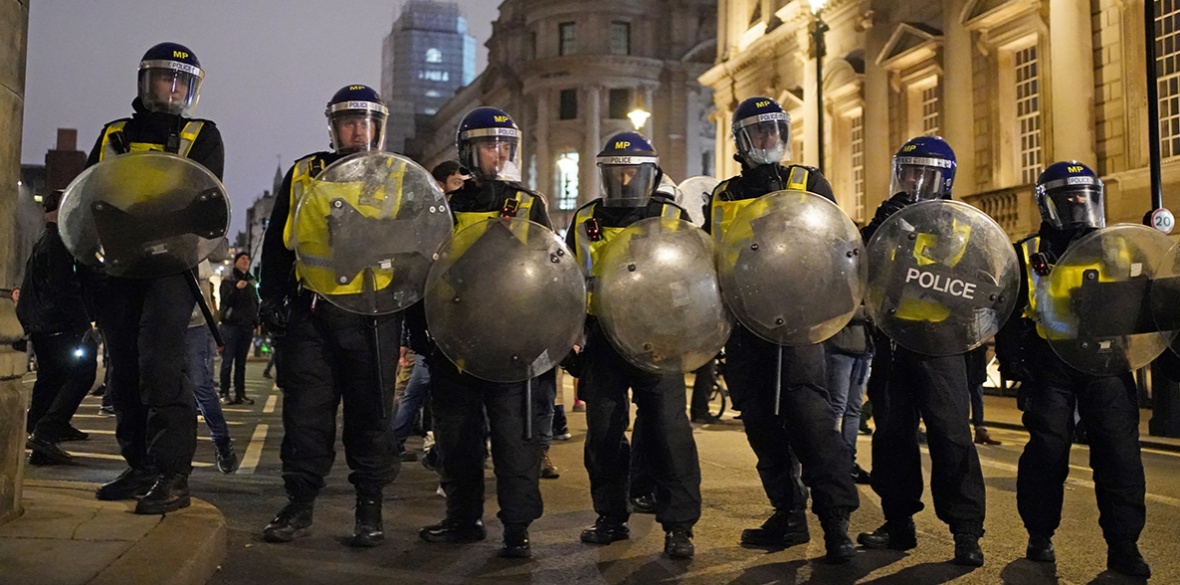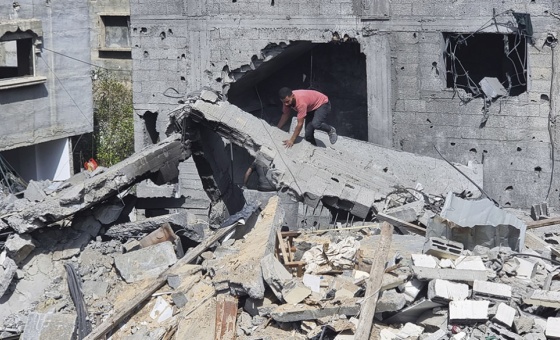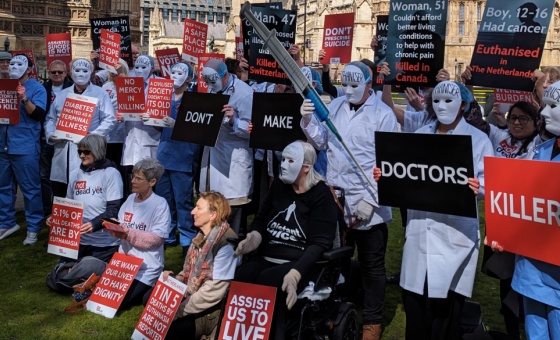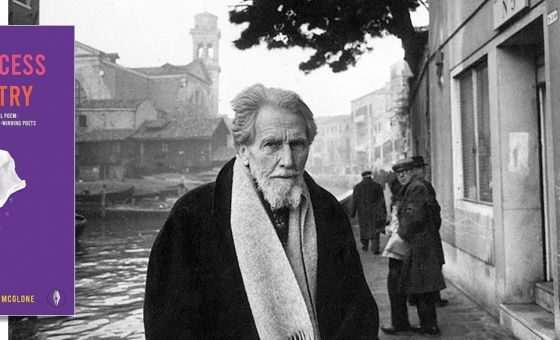This is the last article you can read this month
You can read more article this month
You can read more articles this month
Sorry your limit is up for this month
Reset on:
Please help support the Morning Star by subscribing here
by Bethany Rielly
CAMPAIGNERS raised the alarm yesterday over the increasing militarisation of the police and border control, warning of a “war mentality” infiltrating British policing.
In a new report, police monitoring group Netpol and Campaign Against the Arms Trade (CAAT) express concerns at what they say is an increasingly “blurry” line between the police and military.
The report highlights the increasing police use of “military-grade” technology, such as mobile fingerprint scanners and facial recognition systems, for surveillance.
These “invasive” tools vastly tip power in favour of the state, it argues, and are being rolled out in the “absence of sufficient legislative or parliamentary oversight.
“In many cases, these surveillance technologies amplify racist, sexist and classist police practices,” the report warns.
The campaigners say that “hyper-militarisation” of the police is especially pronounced in counterterrorism work and border control.
They point to the use of military-grade drones to monitor asylum-seekers crossing the English Channel and the government’s decision to put the navy in charge of efforts to stem the influx.
The campaigners also raise concerns about a “battlefield mentality” in British policing, which sees an “ever-changing” list of groups treated as “internal enemies,” defined as “gangs,” “anti-social youth,” “illegal immigrants” and “domestic extremists.”
Report author Dr Keren Weitzberg said: “The police are increasingly relying on high-tech, data-driven and military-grade technology to surveil the British population and through the exchange of ideas, tactics and technologies, the UK government has played an outsize role in shaping global trends in militarised policing.”
Britain has also helped to spread military-style policing abroad, the report claims.
“It is a major supplier of anti-protest equipment, such as tear gas, riot shields and rubber bullets, as well as telecommunications interception technology, often to countries with terrible human rights records and a history of repressive policing,” CAAT research co-ordinator Sam Perlo-Freeman explained.
“This means the UK is complicit in repressing protest across the globe.”
Netpol communications co-ordinator Emily Apple said: “Even before the Police, Crime, Sentencing and Courts [PCSC] Act, the police used their powers to excessively surveil and repress protest and label activists as domestic extremists or aggravated activists.
“With the PCSC Act, we’re more likely to see increased criminalisation and surveillance of protesters. It’s down to all of us to monitor what the police are doing and to defend our right to dissent.”

 Bethany Rielly
Bethany Rielly









